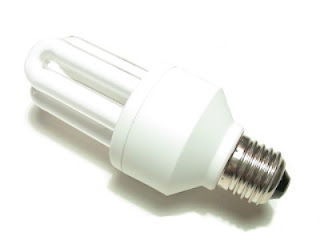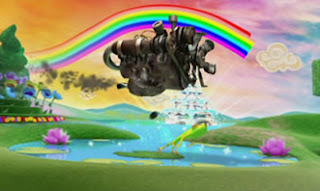This week's Illustration Friday theme was 'Dusty'. I drew this image in Photoshop, trying to get a slightly watercolour-like effect with the colouring.
Thursday, 27 January 2011
Monday, 24 January 2011
Illustration Friday - Chicken

This was my entry for this week's Illustration Friday with the theme "Chicken". I showed this to my Graphic Design class at college, and they said to:
+ Add colour, though some people liked it in black and white.
+ Remove the double hyphen next to 'This Time It's Personal'
+ Clean up the lines to make them smoother and better joined.
The next theme is "Dusty", I'm excited to see what I can come up with next!
Monday, 10 January 2011
Greenwash - A Simpler Explanation
Greenwash (in brief) is when companies mislead the public in advertising, by making the product sound more ‘green’ than it really is. For example, claiming that a large, gas-guzzling car is extremely efficient, when in fact, it is still a huge, gas-guzzling car, and is probably only a tiny bit more efficient than it’s competitors in the field.
The term ‘greenwash’ is a play on the more used term ‘whitewash’, which is the process used to hide information that you don’t want others to see.
Greenwashing comes in many forms:
It could be a company advertising an efficient product, though the product itself is made in a factory which creates a lot of pollution.
 |
| Energy saving light bulbs - still made in a polluting factory |
It could be ridiculously misleading advertisements that show things such as flowers blooming around a car’s exhaust or a factory next to a clean river.
 |
| Honda advertise their engine - surrounded by flowers and rainbows |
It could be companies using over-complicated jargon to make a point, so that only scientists and the extremely pedantic among us could check or comprehend the lies.
 | |
| Kenco make recycling harder by switching from glass to plastic |
The Kenco case is what really grinds my gears about greenwashing, as it is a glaring example. Kenco's genius marketing team has decided to switch to a plastic pouch because it apparently takes less energy to make, despite the fact that glass is a much easier material to recycle. This is both an example of making something not-so-eco-friendly sound greener AND an example of using stupid jargon (97% less packaging weight) to make the product sound greener.
The problem with greenwashing is that people stop trusting the greenwashing claims made by companies and in turn, they stop buying products that claim to be green. With no revenue coming in from green products, companies would eventually stop producing greener products, and eventually there would be no incentive to become more environmentally friendly.
In conclusion, greenwashing is an example of companies trying far too hard to make an impression on the public, with potentially disastrous consequences. Greenwashing will hopefully not last much longer, once the consumer clicks onto the crazy techniques the companies are using (although based on the sheer amount of 'green-based' complaints made to ASA in the latest few years).
Overall, I can't say I ever really agree with lying and cheating for money, but at least greenwashing is slightly aimed for a good cause.
Subscribe to:
Comments (Atom)

